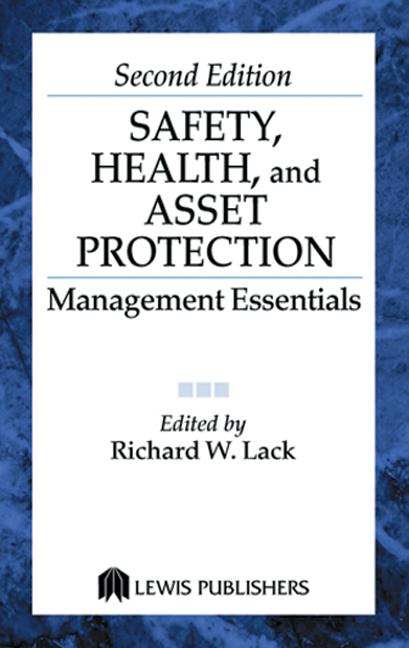A Trump nominee drops out, a new salt rule for NYC restaurants is upheld and an industry-specific occupational illness has an unwelcome resurgence. These were among the top stories featured on ISHN.com this week.
Surgery can bring smoke exposure for healthcare workers
A recent survey of healthcare workers found that certain surgical procedures often lack ventilation that removes surgical smoke at its source, according to researchers at the National Institute for Occupational Safety and Health (NIOSH).
Electronic recordkeeping rule favorite target of pro-repealers
Survey of ISHN readers shows dislike for IPP, HazCom
A study ISHN conducted recently to help us understand safety and health professionals’ perceptions and expectations around change in OSHA-related regulations, as a result of a new political administration in Washington D.C. produced a wealth of information and opinions. An article posted earlier about whether or not OSHA standards should be repealed showed a division among respondents based mainly on their job functions.
Puzder no longer in running for labor secretary
President Donald Trump’s nominee for labor secretary, Andrew F. Puzder, withdrew his nomination Wednesday amid a growing wave of bipartisan opposition. Puzder, a fast-food executive who opposed the Affordable Care Act and raising the minimum wage and has strongly promoted the use of automation in the workplace, has been accused by liberal groups of being aligned with interests of company owners instead of with those of workers.
Teaching young workers about safety
Start with NIOSH 8 Core Competencies
Many young workers under age 25 enter the workforce before they have had a chance to develop foundational job skills. In fact, most high schoolers—an estimated 80 percent— hold a job at some point during their school years.
Two severe worker injuries = $219K for Wisc. manufacturer
In less than 10 days in 2016, two employees at a Green Bay muffler component manufacturer suffered severe injuries as they operated machinery without adequate safety guards and procedures in place, federal workplace safety investigators have determined.
Black Lung disease comes roaring back
Despite the best efforts of the Mine Safety and Health Administration’s (MSHA) efforts to control exposure to respirable coal mine dust, the number of Black Lung cases currently being diagnosed in Appalachia is unprecedented, according to some researchers. In the decades since the passage of the 1977 Mine Act, MSHA has tried everything from new and more stringent regulations, including Lowering Miners’ Exposure to Respirable Coal Mine Dust, final rule, the use of Continuous Personal Dust Monitors and compliance assistance initiatives to eliminate the conditions that lead to the disease.
ISHN readers want next OSHA chief to…
More results from our online flash survey
With a new administration taking a new approach to federal agencies, ISHN thought it a good time to survey our readers to find out what they feel should be the shape and direction OSHA takes going forward. For instance, the majority of respondents felt that increased educational tools and programs should be the top priority for the next OSHA Chief. Half or more respondents expect a thorough review of standards or increased support for the voluntary protection program.
A NIOSH Science Blog post
Continuous personal dust monitor
Until recently, underground coal miners and mine operators had little way of knowing—in real time—if miners were being exposed to hazardous levels of respirable coal dust during their shifts. NIOSH collaborated with an instrument manufacturer, government partners, labor representatives, and coal industry leaders to develop the continuous personal dust monitor (CPDM), a technology that offers miners, safety personnel, and operators real-time exposure information to help protect miners’ health.
Mediterranean diet with virgin olive oil may boost ‘good’ cholesterol
A Mediterranean diet rich in virgin olive oil may enhance the cardioprotective benefits of high-density lipoproteins (HDL—the “good” cholesterol) compared to other diets, according to new research in the American Heart Association’s (AHA) journal Circulation.
VPP funding gets a "thumbs up" from ISHN readers
More results from our online survey
With a new occupant in the White House, ISHN thought it a good time to conduct an online flash survey to find out what our readers think about the federal agency that most impacts their jobs, OSHA. Will OSHA change under the Trump administration? Should OSHA change under the Trump administration?
A NIOSH Science Blog post
The art and science of OELs for nanomaterials
Engineered nanomaterials are fascinating. Just by making stuff smaller researchers have discovered forms of materials and even completely new materials that can be applied as diversely as better drugs, better paints or faster electronics. Using chemicals in a nanoscale version can completely alter their nature.
NYC's restaurants must post sodium warnings
State Supreme Court lets rule stand
New York City’s chain restaurants failed last week in their effort to overturn a city rule requiring warning about high-sodium menu items. The New York State Supreme Court Appellate Division upheld the rules set by the city’s Board of Health, finding that it was “well within its authority” to require warnings about menu items that contained more than 2,300 milligrams of sodium, the federally recommended daily allowance.
Hundreds of business groups urge Senate to pass Regulatory Accountability Act
More than 616 business groups recently signed a letter to Senate Majority Leader Mitch McConnell (R-KY) and Minority Leader Charles Schumer (D-NY) urging them to use their positions to pass the Regulatory Accountability Act of 2017 (RAA). The RAA recently passed the House with a vote of 238-183. The Senate has failed to pass RAA on three previous occasions after House passage. Democrats hold enough seats in the Senate to filibuster the bill.
Should OSHA's budget change?
With some of President Trump’s first official actions involving federal regulations and federal agencies, ISHN thought it a good time to conduct an online flash survey to find out what our readers think about OSHA and what changes, if any, they’d like to see happen within the agency and to the regulations it promulgates and enforces.
Industry backs regulatory relief
U.S. Chamber of Commerce President and CEO Thomas J. Donohue issued the following statement regarding President Trump’s executive actions on regulations: “The U.S. Chamber applauds the president for fulfilling the campaign’s promise to take on the regulatory juggernaut that is limiting economic growth, choking small business, and putting people out of work."


